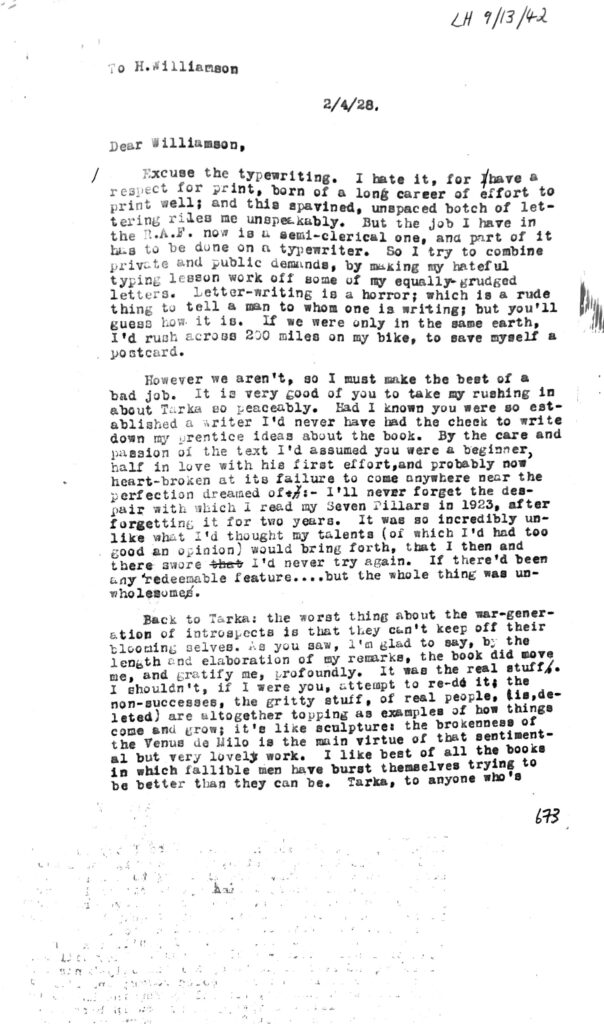Correspondence – Page 31
Correspondence
Page 31
LH 9/13/4-2
To H. Williamson
2/4/28.
Dear Williamson,
Excuse the typewriting. I hate it, for I have a respect for print, born of a long career of effort to print well; and this spavined, unspaced botch of let- tering riles me unspeagably. But the job I have in the “Arab” is a semi-clerical one; and part of it has to be done on a typewriter. So I try to combine private and public demands, by making my hateful typing a minor lesson by way of my equally-grudged letter-writing is a horror; which is a rude thing to tell a man to whom one is writing; but you’ll guess how it is. If we were only in the same earth, I’d rush across 230 miles on my bike, to save myself a postcard.
However we aren’t, so I must make the best of a bad job. It is very good of you to take my rushing in about Turks so peaceably. Had I known you were so est- ablished a writer I’d never have had the cheek to write down my remarks: ideas about the book. By the case and passion of the text I’d assumed you were a beginner, half in love with his first effort,and probably now heart-broken at its failure to come further near the perfection dreamed of. I’ll never forget the des- pair with which I read my Seven Pillars in 1923, after forgetting it for two years. It was so incredibly un- like what I’d thought my talents (of which i’d had too good an opinion) would bring forth, that I then and there swore I never try again. If there’d been any “adequate” tedium, the whole thing was un- wholesome.
Back to Turks: the worst thing about the war-gener- ation of introspects is that they can’t keep off their blooming selves. As you say, I’m glad to say,
the long,high and elaboration of my remarks: the book did move me, and gratify me, profoundly. It was the real stuff.
life, and gratify me, profoundly. It was the real stuff.
I shouldn’t, if I were you, attempt to re-do it: the non-successes. the critic’s study of real people (i.e.de- leted) are altogether topping as examples of how things come and grow: it’s like sculptures the brokenness the “nnus de la tio” is the main virtue of the sentiment- al but very awkward work. I like best of all the books in which fallible men have burst themselves trying to
be better than they can be. Faria, to anyone who’s
673
Editor's Note: This text has been transcribed automatically and likely has errors. if you would like to contribute by submitting a corrected transcription.
